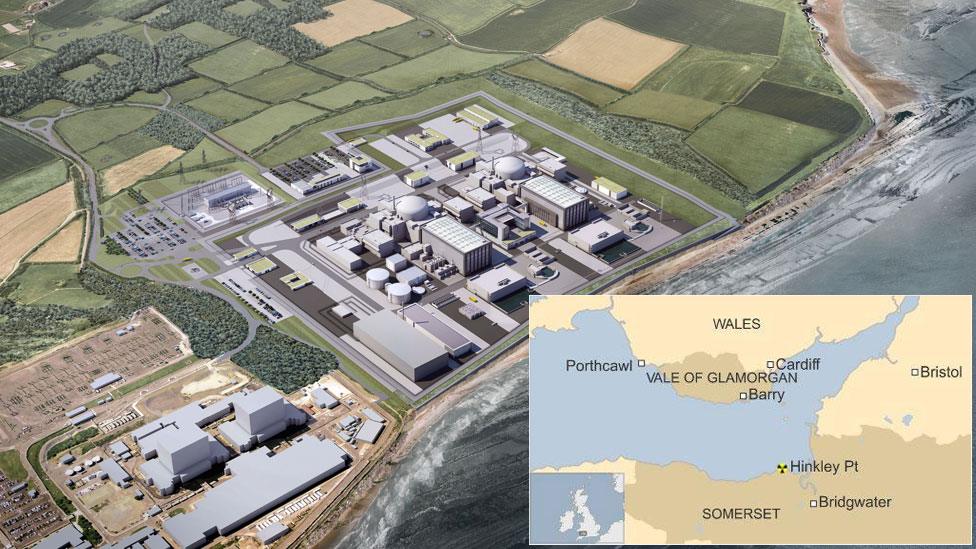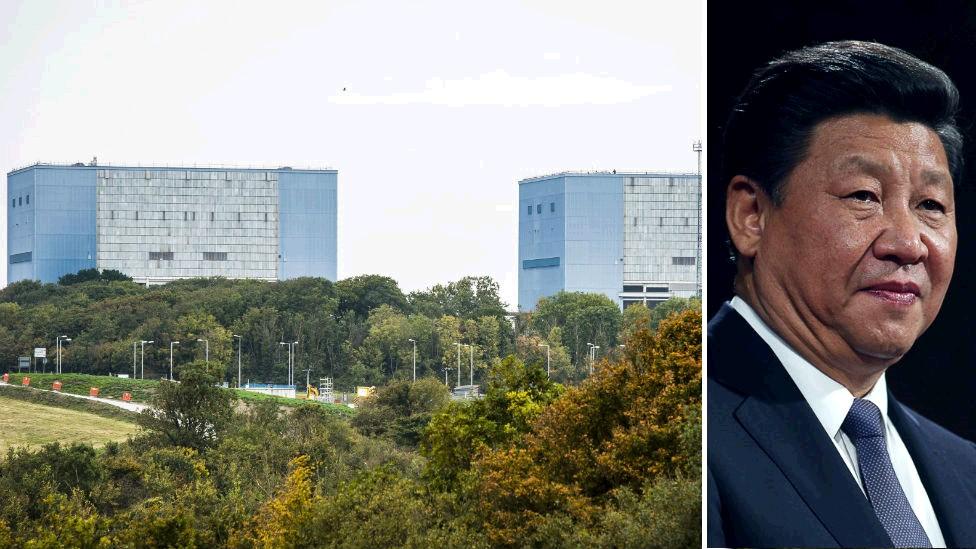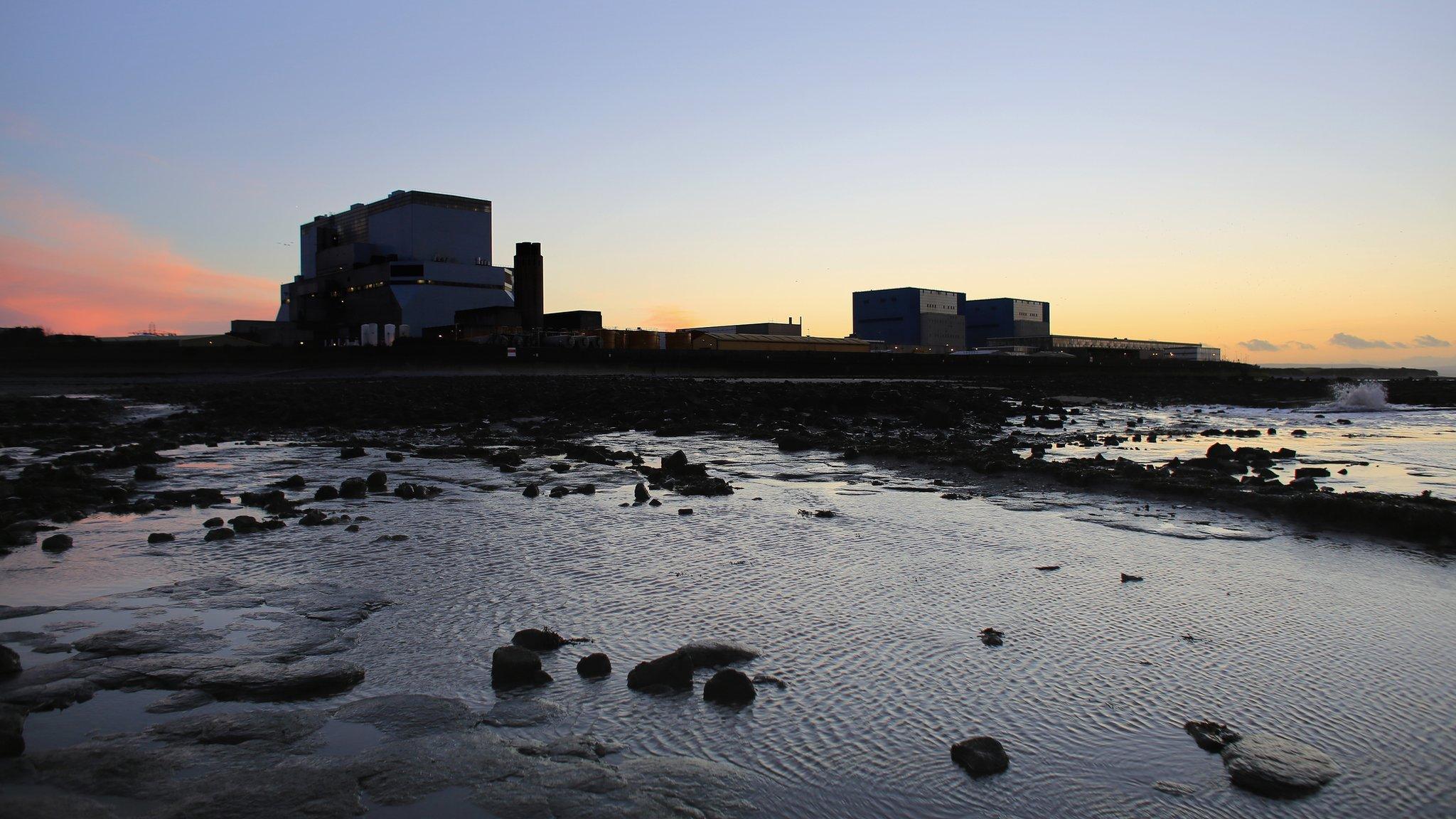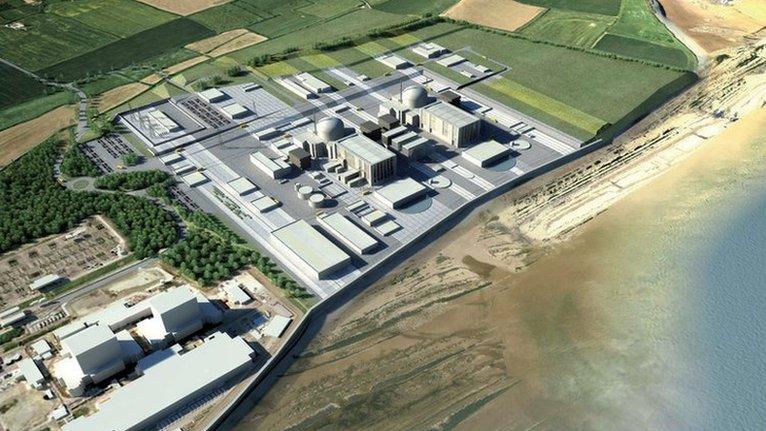Hinkley Point C and the implications for Wales
- Published

Plans for Britain's first new nuclear power plant in 20 years has taken a major step forward.
But what are the implications of Hinkley Point C for south Wales, with Barry only 14 miles (22.5km) across the Bristol Channel and Cardiff 19 miles (30.5km) away?
The deal between EDF Energy and China General Nuclear Power Corporation (CGN) was announced at a news conference by Prime Minister David Cameron and Chinese President Xi Jinping.
Excavation work has already started on this third reactor to be built on the coast.
It could lead to thousands of construction jobs that could benefit Wales too.
But there are environmental implications as well, not least that radioactive waste could be stored on site for between 100 to 160 years.
That is the prospect at least until a safe long term nuclear depositary site has been identified to take all of the UK's historical nuclear waste - currently at Sellafield - as well as the new radioactive waste from the new fleet of power plants including Wylfa Newydd, Oldbury and Sizewell.
Environmental think tank's chairman Tom Burke says the proposed new Hinkley Point power station will be "a very bad deal for Britain"
Nigel Cann, construction director for EDF Energy at Hinkley Point C, said as well as 14m high sea walls the plant was designed to survive collision with aircraft.
"We build in margins of safety - for 10,000 years and extra for issues like global warming," he said.
He said 850,000 working hours had gone into the engineering and there was a "robust" independent regulatory process to ensure the design "was safe and provided reassurance to the public".
Hinkley Point C
Nuclear power station, Somerset
£18bn
building cost
-
25,000 jobs
-
60 year lifespan
-
7% of UK's generation needs
-
£92 per MWh electricity price agreed with UK Government
EDF Energy says the design:
Will produce around 30% less radioactive waste - around 20 square metres a year intermediate level waste and 146m sq low level waste
Make more effective use of fuel - estimated to be around a 17% drop in uranium consumption
The cooling systems will need very little intervention from humans.
"We take management of radioactive fuel hugely seriously and we understand the expectations on us as an operator is to make sure we do everything to the highest levels of safety," said Mr Cann.
Nigel Cann, of EDF Energy, said there were already workers from Wales on the project
Once the finance is confirmed, it will take 10 years and 10 million tonnes of concrete - that is 75 times the amount used to build Cardiff's Millennium Stadium.
There will be work opportunities for Welsh construction companies; some workers are already commuting over the Severn Bridge.
But nuclear energy sceptics point to two EDF plants which are currently behind schedule and over budget in Finland and France.
Greenpeace has been campaigning vigorously against nuclear power because it claims "it's an unacceptable risk to the environment and to humanity".
It is still trying to fight Britain in the European courts over state aid to Hinkley Point C.
Prof Karen Henwood, a social sciences expert at Cardiff University has studied communities close to big nuclear projects.
"Technical considerations mean that people can be quite on the back foot because they feel uneasy they don't have enough knowledge," she said.
"And there are differing ethical voices to be heard."
In Wales, despite Trawsfynydd and Wylfa sites, there has been a long standing opposition to nuclear power.
Cor Cochion Caerdydd - the Cardiff Red Choir - protest most weekends about issues, including distrust of nuclear power
Choir member Paul Relph said: "It's never been proved it's completely safe and my other concern is nuclear waste - we're leaving it for future generations, it's just wrong," he said.
For the UK government, it is pursuing a mixed energy strategy to avoid possible power shortages in future.
At the same time, a quarter of Britain's old power plants are to be decommissioned during the next 10 years - and reliable, secure replacement power has to be found.
- Published21 October 2015

- Published24 September 2015
- Published4 September 2015

- Published8 October 2014
